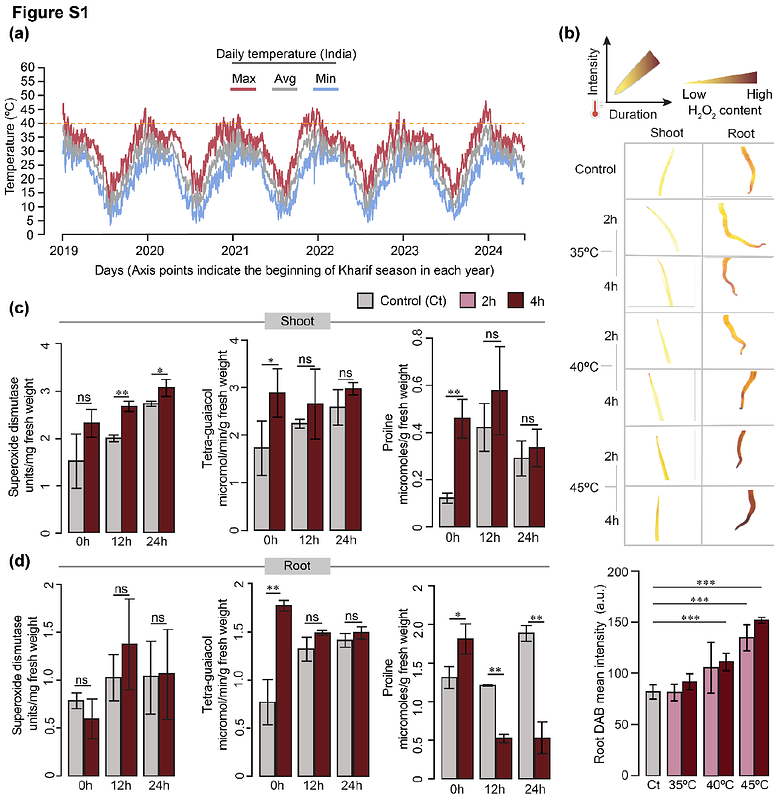ERF transcription factor regulons underpin growth-defence trade-off under acute heat stress in rice seedlings

ERF transcription factor regulons underpin growth-defence trade-off under acute heat stress in rice seedlings
Nair, A. U.; Vishwakarma, S.; Guha, T.; Kadumuri, R. V.; Fritschi, F. B.; Chavali, S.; Allu, A. D.
Abstract- Rice, a staple cereal crop, faces significant threats from rising temperatures, affecting all growth stages including early seedling establishment. Despite being critical in determining overall growth and productivity, response to heat stress during the early seedling stage remains understudied. This research aimed to assess the impact of acute heat stress on rice seedlings and unravel underlying molecular mechanisms. - Rice seedlings were exposed to varying intensities and durations of heat stress to determine a critical threshold affecting growth. To elucidate the transcription factor (TF)-mediated regulatory mechanisms and their functional interactome in response to stress, transcriptomic analysis of shoots and roots exposed to acute heat stress was performed. - Transcriptome analysis unveiled a comprehensive TF-target regulatory map for shoots and roots, potentially involved in the modulation of growth-defence trade-off in response to acute heat stress. Ethylene Responsive Factors (ERFs) emerged as central regulators, with phytohormones ethylene and jasmonic acid acting as upstream modulators. Pre-treatment with these phytohormones alleviated the adverse effects of heat stress. - This study uncovers key molecular mechanisms governing rice seedling responses to acute heat stress involving ERFs-hormonal interactions. Modulating these core regulators presents a promising strategy to enhance heat resilience, addressing global food security amid rising temperatures.